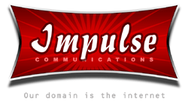I have bought around a hundred websites over the past few years, but I have never bought any companies, and here’s why. When you buy an entire company instead of just buying their assets (like their website), you are exposed to all of their potential liabilities. A good example of this happened recently with Snapnames.com, which is a domain name auction company that was purchased by Oversee.net in 2007 for a rumored price of around $25 million. It was recently discovered that a rogue Snapnames employee going by the online name “halvarez” engaged in “shill bidding” by bidding in approximately 50,000 domain name auctions from 2005 through 2009, inflating the sale prices which caused bidders to spend what is estimated to be millions of extra dollars. Snapnames has done a great job handling this, offering to give refunds to all of the auction winners that lost money from this, but even so there are now 2 class action lawsuits pending regarding this case.
I have dealt with Snapnames.com and Oversee.net for many years and never had any problems with either company, and in no way think either company intentionally tried to defraud their customers. It appears to all be the result of one or more “bad” employees. But, the reasons for the problems are not the point. The point is that Oversee.net got a lot more than they bargained for when they bought Snapnames, and even if they win the lawsuit the legal fees could be astronomical, so I would guess they are regretting the purchase.
Another example of the risks involved in buying a company is the pending lawsuit filed by Thought Convergence (owner of TrafficZ.com domain parking company and several other online services), over their $16 million purchase of Name Intelligence (owner of DomainTools.com and other online ventures) in 2008. You can click here to read the claims listed in the lawsuit, but basically Thought Convergence says the owner of Name Intelligence made a significant misrepresentations about the financial condition of his company and his plans to stay involved with the business after the purchase. According to Thought Convergence’s side of things, it seems the seller told them whatever they wanted to hear, just to get the sale done. The seller of course has his own counterclaims, saying that Thought Convergence misrepresented all sorts of things on their end in order to get him to sell. Again, the point is that the whole thing is a big mess and Thought Convergence probably by now regrets the deal.

nice article, keep on posting.=)
That’s probably the risk of wanting to have something big in an instant. I would rather put up my own company and start from scratch than buy an existing one.